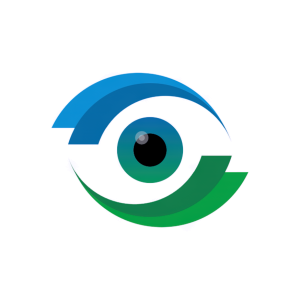Ocugen Announces Positive Data and Safety Monitoring Board Review and Initiation of Enrollment in Medium Dose for OCU410ST—a Modifier Gene Therapy—in GARDian Study for Stargardt Disease
- Established Low Dose as Safe and Tolerable Dose in Current OCU410ST Clinical Trial
- DSMB Determination to Proceed with Medium Dose Cohort Dosing
MALVERN, Pa., April 01, 2024 (GLOBE NEWSWIRE) -- Ocugen, Inc. (Ocugen or the Company) (NASDAQ: OCGN), a biotechnology company focused on discovering, developing, and commercializing novel gene and cell therapies and vaccines, today announced that the Data Safety and Monitoring Board (DSMB) for the OCU410ST clinical trial recently convened and approved to proceed dosing with the medium dose of OCU410ST in the dose-escalation phase of the study.
Three patients with Stargardt disease were dosed in the Phase 1/2 clinical trial to date. An additional three patients will be dosed with the medium dose (Cohort 2) and three patients with the high dose (Cohort 3) of OCU410ST in the dose-escalation phase.
“The DSMB has recommended moving forward to medium dose for dosing subjects with Stargardt disease,” said Dr. Peter Chang, MD, FACS, DSMB Chair for the OCU410ST clinical trial. “No serious adverse events (SAEs) related to OCU410ST have been reported to date. I believe that this marks a critical next step towards determining the optimal dosing regimen for OCU410ST.”
“We are pleased to see the continued favorable safety and tolerability profile exhibited by OCU410ST, allowing us to evaluate a higher dose in patients with Stargardt retinal dystrophy,” said Huma Qamar, M.D., MPH, Chief Medical Officer of Ocugen. “We recognize the high unmet medical need for Stargardt patients, as there are no current FDA-approved therapies for the indication, and we look forward to sharing the interim safety data from our Phase 1 trial in the second quarter of 2024.”
The GARDian clinical trial will assess the safety and efficacy of unilateral subretinal administration of OCU410ST in subjects with Stargardt disease and will be conducted in two phases. Phase 1 is a multicenter, open-label, dose ranging study consisting of three dose levels [low dose (3.75×1010 vg/mL), medium dose (7.5×1010 vg/mL), and high dose (2.25×1011 vg/mL)]. Phase 2 is a randomized, outcome accessor-blinded, dose-expansion study in which adult and pediatric subjects will be randomized in a 1:1:1 ratio to either one of two OCU410ST dose groups or to an untreated. The Company will continue to provide clinical updates.
Ocugen is committed to finding solutions for people with inherited retinal disease for whom no effective treatment options exist. While an orphan disease, Stargardt affects approximately 40,000 people in the United States alone.
About Stargardt Disease
Stargardt disease is a genetic eye disorder that causes retinal degeneration and vision loss. Stargardt disease is the most common form of inherited macular degeneration. The progressive vision loss associated with Stargardt disease is caused by the degeneration of photoreceptor cells in the central portion of the retina called the macula.
Decreased central vision due to loss of photoreceptors in the macula is the hallmark of Stargardt disease. Some peripheral vision is usually preserved. Stargardt disease typically develops during childhood or adolescence, but the age of onset and rate of progression can vary. The retinal pigment epithelium (RPE), a layer of cells supporting photoreceptors, is also affected in people with Stargardt disease.
About OCU410ST
OCU410ST utilizes an AAV delivery platform for the retinal delivery of the RORA (RAR Related Orphan Receptor A) gene. It represents Ocugen’s modifier gene therapy approach, which is based on Nuclear Hormone Receptor (NHR) RORA that regulates pathway links to Stargardt disease such as lipofuscin formation, oxidative stress, compliment formation, inflammation, and cell survival networks.
About Ocugen, Inc.
Ocugen, Inc. is a biotechnology company focused on discovering, developing, and commercializing novel gene and cell therapies and vaccines that improve health and offer hope for patients across the globe. We are making an impact on patient’s lives through courageous innovation—forging new scientific paths that harness our unique intellectual and human capital. Our breakthrough modifier gene therapy platform has the potential to treat multiple retinal diseases with a single product, and we are advancing research in infectious diseases to support public health and orthopedic diseases to address unmet medical needs. Discover more at www.ocugen.com and follow us on Twitter and LinkedIn.
Cautionary Note on Forward-Looking Statements
This press release contains forward-looking statements within the meaning of The Private Securities Litigation Reform Act of 1995, which are subject to risks and uncertainties. We may, in some cases, use terms such as “predicts,” “believes,” “potential,” “proposed,” “continue,” “estimates,” “anticipates,” “expects,” “plans,” “intends,” “may,” “could,” “might,” “will,” “should,” or other words that convey uncertainty of future events or outcomes to identify these forward-looking statements. Such statements are subject to numerous important factors, risks, and uncertainties that may cause actual events or results to differ materially from our current expectations. These and other risks and uncertainties are more fully described in our periodic filings with the Securities and Exchange Commission (SEC), including the risk factors described in the section entitled “Risk Factors” in the quarterly and annual reports that we file with the SEC. Any forward-looking statements that we make in this press release speak only as of the date of this press release. Except as required by law, we assume no obligation to update forward-looking statements contained in this press release whether as a result of new information, future events, or otherwise, after the date of this press release.
Contact:
Tiffany Hamilton
Head of Communications
IR@ocugen.com









